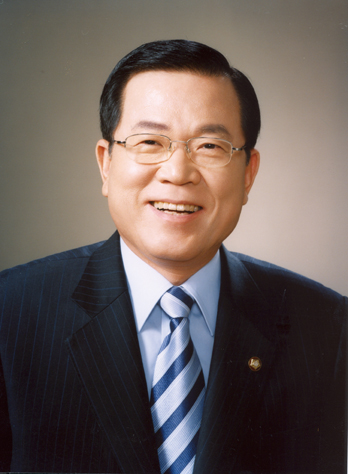Rep. Choi Blasts Government
Accuses them of failure to prevent drop in cattle prices by not taking measures when U.S., Canadian beef imports were reopened

Rep. Choi In-kee, chairman of the Food, Agriculture, Forestry, and Fisheries Committee of the National Assembly, said the government should take measures to prop up the price of cattle before it falls any further and becomes a full-blown crisis.
The legislator said the steep fall in the price of domestic cattle in recent months has been caused by the lack of proper measures by the Lee Myung-bak government, despite the full reopening of U.S. beef imports in 2008 and the signing of the free trade agreements with the EU and the United States that undermined the livestock industry in Korea.
The committee chairman also lashed out at the government for its failure to take proper policy measures in the wake of the reopening of Canadian beef imports; the fall in consumption of beef due to foot and mouth disease; the high exchange rates; the low-interest rate driven economy; the increase in the prices of animal feeds; and the drop in the self-sufficiency rate of crops due to weather changes that led to poor harvests around the world, thus driving international prices of feed crops higher.
Rep. Choi also blasted the govern-ment for widening the gap between the rich and poor with its policies favoring big businesses and rich people, which caused serious repercussions for the agricultural community.
"Due to an overall failure of the Lee government's farm policies over the past four years, the agriculture industry in Korea has been led to the edge of extinction and farmers were driven out of their farms, leaving them no choice but to go to streets to protest," Choi said.
"The Lee government has been blaming the farmers in order to turn the responsibility for the failure of its policies on the farmers, rather than regretting and redrawing its farm policies and trying to solve all the problems with market principles. As shown in the Constitution, we have the responsibility to redistribute income and protect the economically weak.
"The government should have properly coped with the outcome of the market economy, which allowed the strong to eat away at the weak, despite having 'economic democracy' engraved in the Constitution. They should have protected the agriculture industry, the lifeline of the people and the state's survival, and nurtured it with policies that guarantee its sustainable development, which could have prevented the despicable situation the livestock industry has been put in now," Choi said.
The committee chairman said the government didn't even budge a little for the committee's proposal to secure funds for saving cows; the control of supply and demand for both the short and mid-term; the reform of the retail network; expanded production; and the set up of a stabilization fund for animal feed production, among other suggestions to preclude the livestock industry crisis like the one that has now developed as a result of the reopening of the domestic market for U.S. beef and the signing of the Korea-U.S. free trade agreement.
"The current livestock industry crisis is wholly owed to government negligence and it should stop any of its actions to turn the blame to the households of cattle farmers," the committee chairman continued in his critique of the govern-ment.
Rep. Choi urged the government to take measures to solve the crisis as early as possible by creating a fund to guarantee the sustainable growth of the livestock industry by protecting and nurturing them with policies, as it takes up about 40 percent of the farm production around the country. He also called for the creation of a subsidy fund to provide 3 million won per hectare for farmers who produce animal feeds to encourage expanded production and to store those animal feeds in public storage facilities, using the animal feed stability fund under a new system to be put together. At the same time, the government should secure enough funds to stabilize the supply and demand for cows by preventing the loss of cows with an early execution of payments. He also called for cutting the seven-stage distribution system and simplifying it because it is too complicated.
Chairman Choi also pledged that he will go over government reports on the livestock price crisis in detail at the Food, Agriculture, Forestry and Fisheries meeting at the National Assembly this month and try to solve it as early as possible.
Rep. Choi, a graduate of Seoul National University College of Law, was a former Minister of the Agriculture and Fisheries Ministry, Mayor of Gwangju City, and floor leader of the Democratic Party. nw
Rep. Choi In-kee, chairman of the Food, Agriculture, Forestry, and Fisheries Committee of the National Assembly.
3Fl, 292-47, Shindang 6-dong, Chung-gu, Seoul, Korea 100-456
Tel : 82-2-2235-6114 / Fax : 82-2-2235-0799